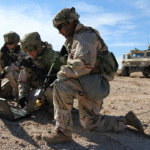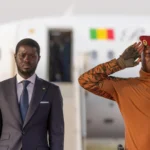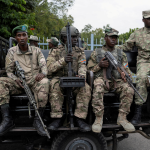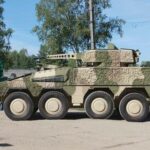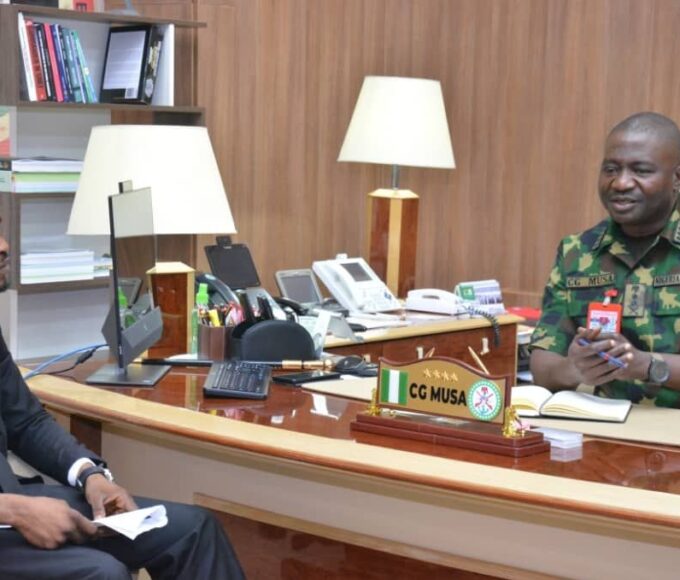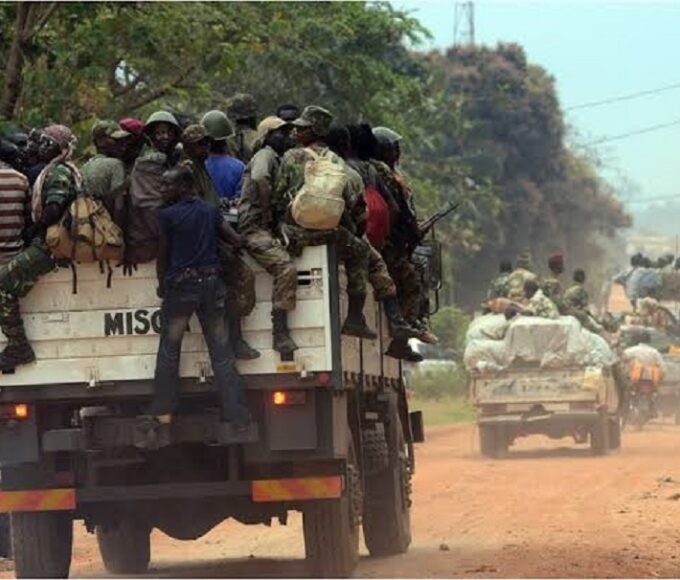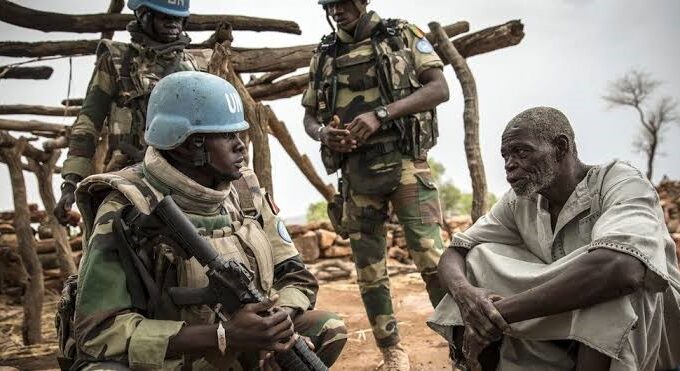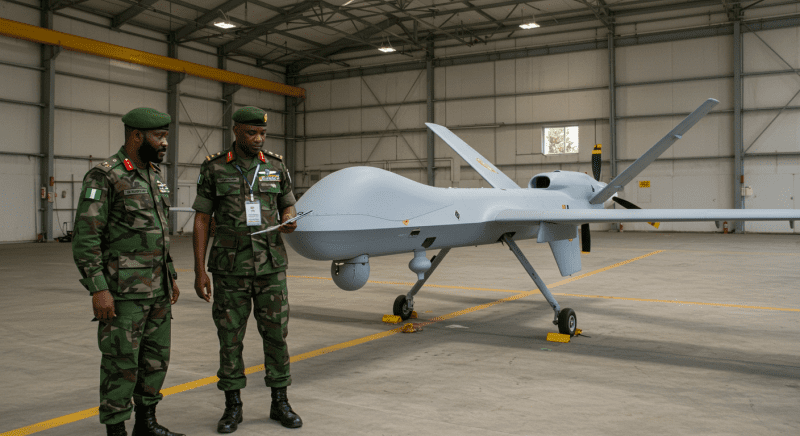
Nigeria’s Briech UAS Debuts ‘Damisa’ Combat Drone in Strategic Push for Defence Autonomy
In the months ahead, the performance and deployment of the Damisa UAS will serve as a critical test — not only of its combat capabilities, but of Nigeria’s broader vision for indigenous defence innovation.
In a major development reflecting Nigeria’s growing emphasis on defence self-sufficiency, indigenous technology company Briech UAS has unveiled its latest innovation — the Damisa combat drone. The cutting-edge unmanned aerial system (UAS), designed and manufactured in Nigeria, was officially revealed at Briech’s headquarters in Abuja, in the presence of top military officials and key stakeholders in the nation’s security and defence sectors.
The name Damisa — which translates to “leopard” in Hausa — symbolises agility, power, and precision, characteristics that the developers believe the drone embodies. The project is widely regarded as a significant stride toward enhancing Nigeria’s ability to counter modern security threats, particularly asymmetric warfare waged by insurgent and terrorist groups in various regions of the country.
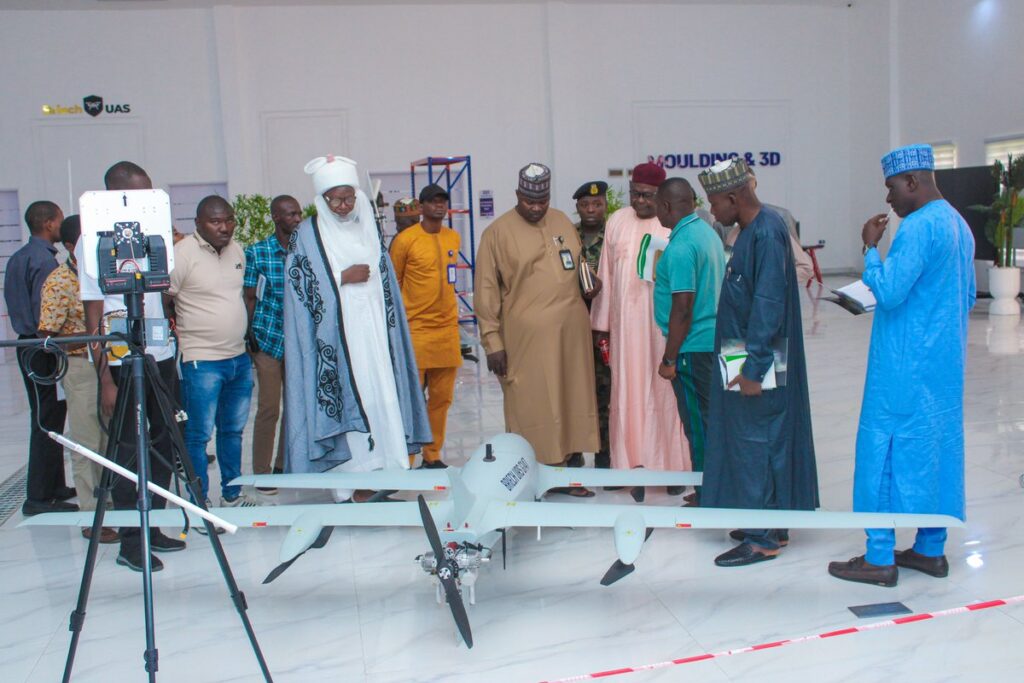
A Force Multiplier for the Nigerian Armed Forces
While technical details of the Damisa UAS remain confidential due to national security considerations, Nigeria’s Chief of Defence Staff, General Christopher Musa, has hailed the drone as a “force multiplier.” He described it as a transformative asset that would sharpen the operational edge of the Nigerian military, particularly in intelligence, surveillance, and reconnaissance (ISR) as well as targeted strike capabilities.
According to General Musa, the development of the Damisa drone demonstrates Nigeria’s capacity to design and build advanced military platforms locally. “This is more than just a piece of hardware,” he remarked. “It is a statement — a validation of our ingenuity and our determination to chart our own course in defence technology.”
The general further stressed the urgent need for locally-produced military assets in an era of volatile global supply chains and geopolitical dependencies. “When a nation cannot manufacture what it needs to protect its sovereignty, it becomes a hostage to foreign interests — even with resources at its disposal,” he warned.
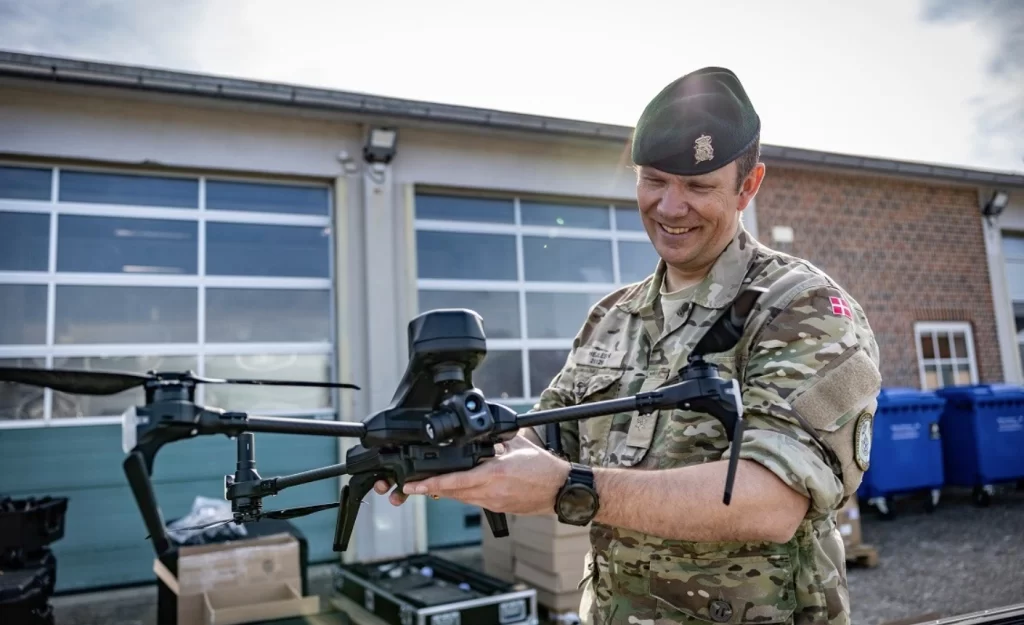
Bridging Strategic Gaps Through Innovation
In recent years, the Nigerian Armed Forces have expanded their use of drones, sourcing various models from foreign partners to bolster counter-terrorism operations, especially in the country’s North-East and North-West regions. Notable among these are the Chinese-made Wing Loong II and the U.S.-supplied Textron Aerosonde drones. More recently, the Nigerian government procured 43 drones, believed to be Bayraktar TB2 models from Turkey, as part of Project Guardian — a multi-pronged strategy aimed at addressing escalating violence in the northern belt.
While these platforms have delivered operational results, Nigerian military planners have continued to push for domestic alternatives that offer cost advantages, faster deployment, and enhanced national control over sensitive technologies. The Damisa drone appears to be the first major outcome of that strategic push.
“The current security climate demands quick, responsive, and locally driven solutions,” noted Air Commodore Haliru A. Balogun (Retired), a defence consultant and former Nigerian Air Force officer. “The fact that this drone has been built right here in Nigeria gives us greater freedom to tailor its use to our specific terrain, threat profile, and mission objectives — without external limitations.”

Building Domestic Capacity and Technological Sovereignty
The unveiling of the Damisa drone also represents the maturation of Nigeria’s defence industrial complex, which has long struggled with underinvestment, limited research collaboration, and bureaucratic inertia. Briech UAS — a relatively new entrant in the country’s growing tech ecosystem — has emerged as a torchbearer in reversing that trend, blending software engineering, aerospace innovation, and strategic vision.
“Our goal is not just to build drones, but to create an ecosystem where Nigeria becomes a hub for unmanned aerial technologies in West Africa,” said Dayo Osinubi, lead engineer at Briech UAS. “We want to move beyond assembly and into full-spectrum design, prototyping, testing, and deployment — all within our borders.”
He added that the Damisa drone is only the first in a series of UAS platforms being developed by the company to serve a variety of defence, law enforcement, and even civil applications such as disaster response and border surveillance.
To support this vision, Briech has partnered with academic institutions, local aerospace engineers, and former military officers to ensure its designs meet real-world operational requirements. Furthermore, the company has plans to scale production over the next two years and establish an integrated training programme for drone pilots, technicians, and maintenance personnel.
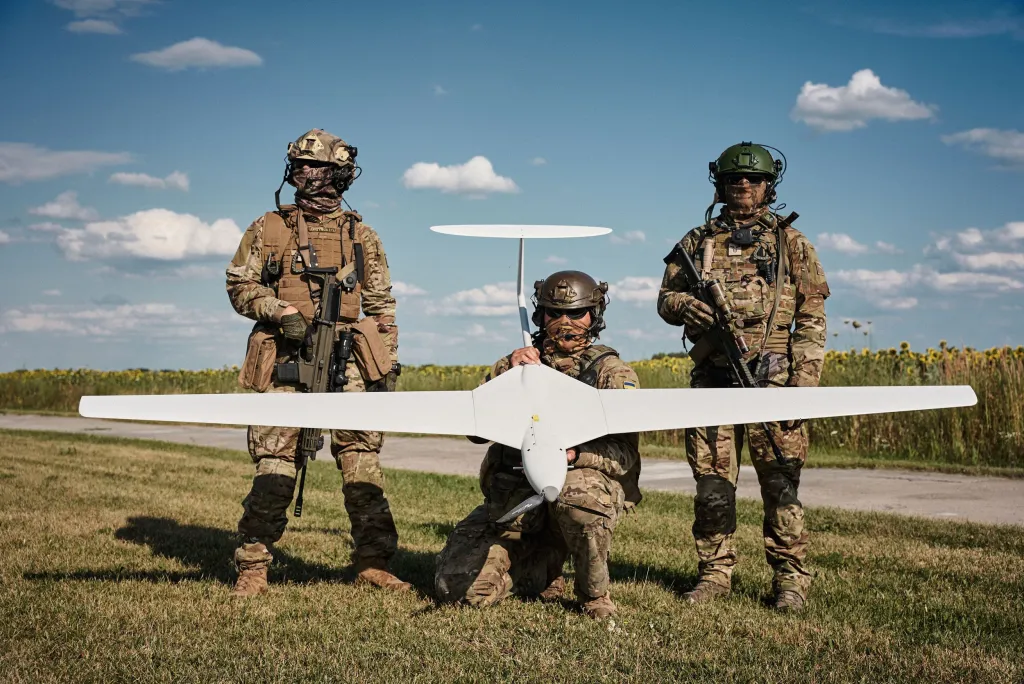
Strategic Autonomy in the Face of Evolving Threats
General Musa and other senior military officials believe that autonomous drone capability is no longer a luxury for modern armed forces — it is a necessity. Nigeria’s security landscape has grown increasingly complex, with the country facing a toxic mix of insurgency, banditry, oil theft, cross-border smuggling, and ethnic militancy.
“Drones give us the advantage of visibility, precision, and reach,” Musa explained. “Whether we are tracking armed groups in the forests of Zamfara or monitoring pipeline infrastructure in the Niger Delta, the flexibility that drones provide is unmatched.”
Moreover, locally-produced drones reduce the strategic risks associated with embargoes, diplomatic friction, and technology denials. Nigeria, like many other developing nations, has occasionally found itself at the mercy of foreign bureaucracies, delaying the procurement of critical security equipment even when funding is available.
By producing drones such as the Damisa at home, the country gains a critical layer of strategic autonomy — one that could prove decisive in future security scenarios.

Strategic Autonomy in the Face of Evolving Threats
The Damisa drone’s launch has implications that go far beyond the battlefield. It could catalyse broader reforms in Nigeria’s defence procurement strategy, encourage public-private partnerships, and spur investment in advanced research and development.
It also aligns with the goals of the Defence Industries Corporation of Nigeria (DICON), which under a 2023 reform law, has been tasked with enabling indigenous military production and fostering local capacity-building. Although Briech UAS operates as a private company, its success story could serve as a blueprint for how Nigeria’s defence sector can be revitalised through innovation and entrepreneurship.
Industry observers say that the key to sustaining this momentum lies in scaling up support for homegrown initiatives, streamlining defence contracting processes, and building synergies between the military, private sector, and academia.

A New Chapter in Nigeria’s Military Modernisation
As the Damisa drone prepares to enter operational service, possibly by the end of 2025, defence analysts are closely watching how it will be integrated into Nigeria’s broader security architecture. While it may not immediately replace all foreign systems, it signals the beginning of a shift toward more balanced and self-reliant procurement practices.
“Nigeria is taking its place among nations that are not just consuming defence technology, but creating it,” said Dr. Ifeanyi Nwachukwu, a geopolitical analyst at the Centre for Strategic Security Studies. “This drone is a harbinger of what’s possible when political will meets technological ambition.”
In the months ahead, the performance and deployment of the Damisa UAS will serve as a critical test — not only of its combat capabilities, but of Nigeria’s broader vision for indigenous defence innovation.

Recent Posts
Categories
- Air & Aerospace16
- Border Security15
- Civil Security4
- Civil Wars4
- Crisis5
- Cyber Security8
- Defense19
- Diplomacy19
- Entrepreneurship1
- Events5
- Global Security Watch6
- Industry8
- Land & Army8
- Leadership & Training5
- Military Aviation5
- Military History27
- Military Speeches1
- More1
- Naval & Maritime9
- Resources2
- Security12
- Special Forces1
- Systems And Technology9
- Tech6
- Uncategorized3
- UNSC1
- Veterans6
- Women in Defence9
Related Articles
Why General C.G. Musa Is the Right Defence Minister for Nigeria—Right Now
President Bola Tinubu’s nomination of General Christopher Gwabin Musa (rtd.) as Minister...
ByKing Richard Igimoh, Group Editor ALODecember 2, 2025DIPLOMACY, PEACE & CIVIL SECURITY – CROSS-BORDER PEACE PACTS IN EAST AFRICA: SUCCESS OR FAILURE?
From the windswept Karamoja hills to the fishing villages of Lake Victoria,...
ByKing Richard Igimoh, Group Editor ALONovember 24, 2025ECOWAS MILITARY INTERVENTION IN NIGER: A TURNING POINT?
The coup d’état in Niger on July 26, 2023, marked a seismic...
ByKing Richard Igimoh, Group Editor ALOOctober 7, 2025CIVIL-MILITARY RELATIONS IN FRAGILE STATES
Fragile states marked by weak governance, economic instability, and persistent unrest face...
ByKing Richard Igimoh, Group Editor ALOSeptember 17, 2025



